In our last post we discussed how prevalent sugars are in packaged foods—even those in which you wouldn’t necessarily expect to find added sugars, such as yogurt and salad dressings. We also discussed what employers can do as part of a comprehensive employee wellness program to reduce the likelihood that employees will make poor food decisions at work, including removing vending machines with sugar-laden snacks. This post will cover why limiting exposure to unhealthy foods is so important.
Beneath Our Conscious Awareness
As much as most of us would like to believe we are in complete control of our choices, the reality is that there are limits to our self-control. In her book, A Big Fat Crisis: The Hidden Forces Behind the Obesity Epidemic—And How We Can End It, Deborah Cohen, MD discusses how self-control “fatigues like a muscle.”
Cohen cites a study in which participants who were presented with treats (chocolate chip cookies), but asked to refuse them, later gave up on a problem-solving puzzle much sooner than participants who weren’t asked to refuse treats, or who weren’t presented with treats at all.
The fact that the participants who were told to refuse the treats gave up on the puzzle so quickly suggests that these participants experienced a kind of brain “fatigue” from the exertion of self-control. This is just one of many studies Cohen cites highlighting the limits of self-control.
The average American is bombarded with food messages every day, from the media and from our environments. After repeated exposures, most of us will eventually give in to temptation. Those who are able to resist are the exception, not the rule, as evidenced by our overweight/obesity crisis.
Wellness in the Workplace
So, what can employers do? They can promote a healthy workplace through health risk assessments and employee wellness programs that limit exposure to unhealthy foods, promote healthy eating on the job and at home, and help employees stay fit through regular exercise. The incentives for employers to implement wellness programs include reduced absenteeism and associated costs from lost productivity, reduced healthcare costs, and improved employee morale.
Sources:
1. A Big Fat Crisis: The Hidden Forces Behind the Obesity Epidemic—And How We Can End It , Deborah Cohen, MD






